#C. G. Jung
Text
Nobody can fall so low unless he has a great depth. If such a thing can happen to a man, it challenges his best and highest on the other side; that is to say, this depth corresponds to a potential height, and the blackest darkness to a hidden light.
— C. G. Jung, Volume 10 of his Collected Works (CW 10) (Routledge, 1964)
23 notes
·
View notes
Quote
The modern world is desacralized, that is why it is in crisis. The modern person must rediscover a deeper source of his own spiritual life.
C. G. Jung

69 notes
·
View notes
Text

The Philosophical Tree by C. G. Jung
#C. G. Jung#the philosophical tree#psychedelic art#visionary art#spiritual art#dreamscapes#art#artwork#psychedelic artwork#spiritual artwork#visions
73 notes
·
View notes
Text
Einerlei, welche Instrumente wir benützen, irgendwo wird der Punkt erreicht, an dem jede Gewissheit aufhört
- C. G. Jung
"Regardless of which instruments we used, at some point, certainty would stop."
#c. g. jung#quotes#philosophy#poetry#dark academia#asthetic#dreams#memory#culture#writing#light academia#romantic academia#words#qouteoftheday#träume
12 notes
·
View notes
Text
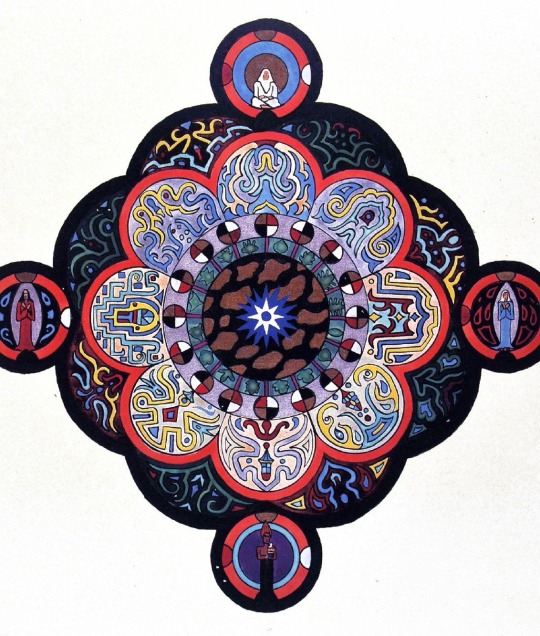
"The artist is not a person endowed with free will who seeks his own ends, but one who allows art to realize its purposes through him."
C. G. Jung
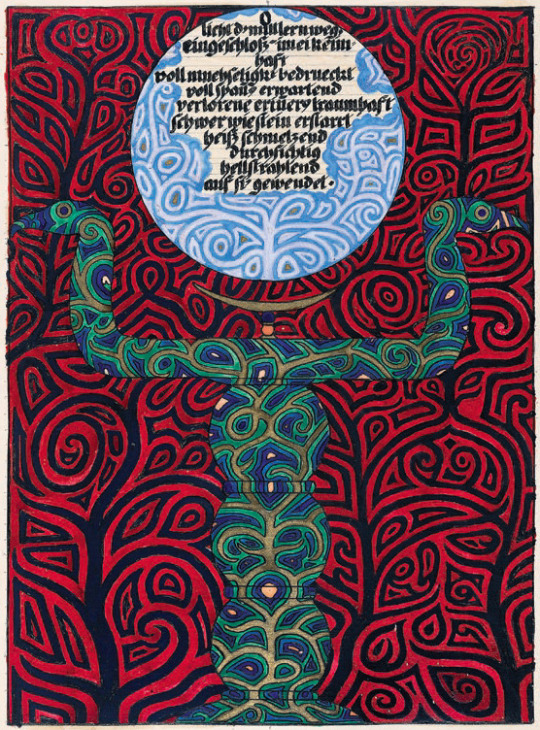
“The artist's life cannot be otherwise than full of conflicts, for two forces are at war within him; on the one hand, the common human longing for happiness, satisfaction and security in life and on the other, a ruthless passion for creation which may go so far as to override every personal desire... there are hardly any exceptions to the rule that a person must pay dearly for the divine gift of creative fire.”
C. G. Jung, The Spirit of Man in Art and Literature
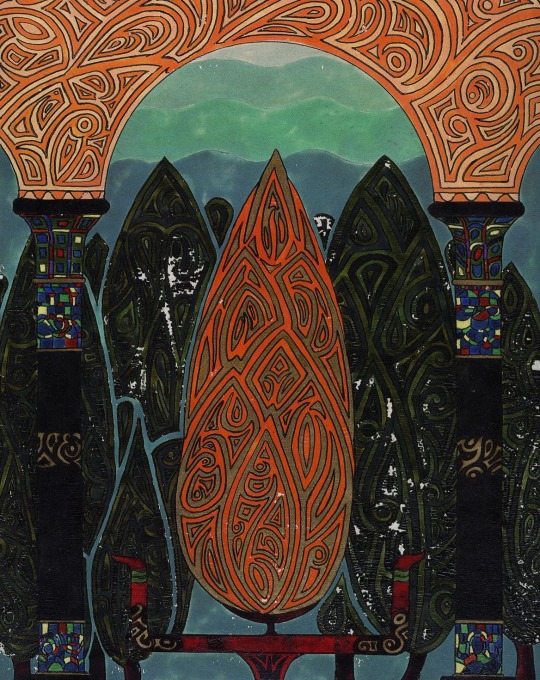
"The biographies of great artists make it abundantly clear that the creative urge is often so imperious that it battens on their humanity and yokes everything to the service of the work, even at the cost of health and ordinary human happiness. The unborn work in the psyche of the artist is a force of nature that achieves its end either with tyrannical might or with the subtle cunning of nature herself, quite regardless of the personal fate of the man who is its vehicle."
C. G. Jung

#occult#magick#carl jung#c. g. jung#jungian psychology#depth psychology#art#art motivation#artists on tumblr#small artist#artwork#original art#tumblr artists#artist support#support small artists
3 notes
·
View notes
Text
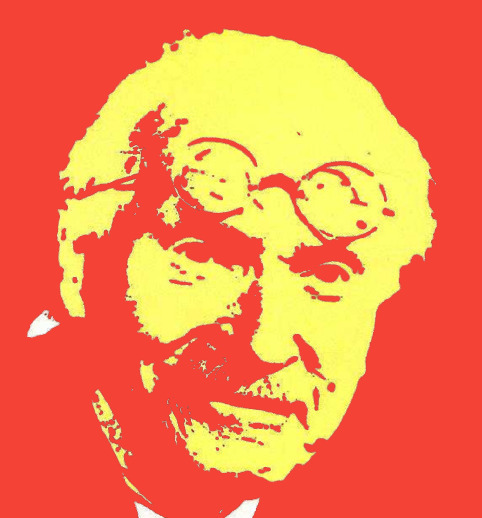
«Las declaraciones del alma pasan siempre por encima de nuestras cabezas, pues apuntan a realidades trascendentes a la consciencia. Estos entia son los arquetipos de lo inconsciente colectivo, los cuales generan complejos de ideas que asumen la figura de motivos mitológicos. Este tipo de ideas no son inventadas, sino que se manifiestan a la percepción interna —por ejemplo, en sueños— a la manera de productos acabados. Se trata de fenómenos espontáneos que se sustraen a nuestro albedrío, por lo que debido a esta razón, es legítimo atribuirles una cierta autonomía. Este es el motivo de que sea preciso observarlos no sólo como objetos sino también como sujetos autónomos. Como es natural, desde el punto de vista de la consciencia pueden ser observados y aun explicados hasta cierto punto como objetos, al igual que se puede describir y explicar a un hombre vivo. Sin embargo, al proceder de este modo es preciso pasar por alto su autonomía. En cambio, de tenerse en cuenta esta última, hay que tratarlos forzosamente como sujetos, y en dicho caso hay que concederles espontaneidad e intencionalidad, es decir, una suerte de consciencia y liberum arbitrium, de libre albedrío o voluntad libre.»
Carl Gustav Jung: Respuesta a Job. Editorial Trotta, pág. 12. Madrid, 2014
TGO
@bocadosdefilosofia
#jung#carl gustav jung#c. g. jung#respuesta a job#arquetipo#arquetipos#inconsciente#inconsciente personal#inconsciente colectivo#autonomía#sujeto#objeto#consciencia#intencionalidad#libre albedrío#voluntad libre#espontaneidad#sueños#psicología#psicoanálisis#psique#fundamento anímico#hombre#ser humano#teo gómez otero
6 notes
·
View notes
Photo
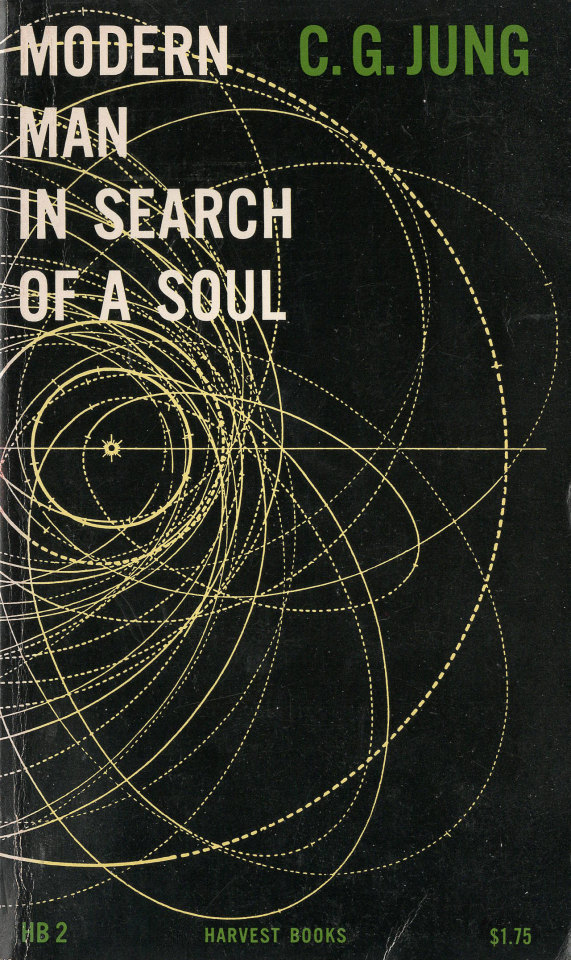
Modern Man in Search of a Soul by C. G. Jung
68 notes
·
View notes
Text
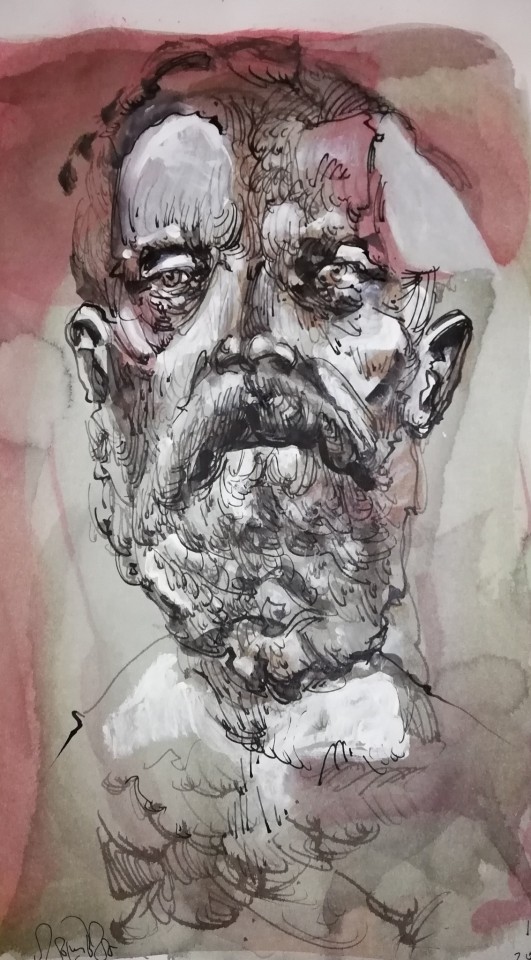
Zeig mir einen gesunden Mann und ich werde ihn heilen. /C. G. Jung
2 notes
·
View notes
Text
A veces siento como si me expandiera por la Tierra y por dentro de las cosas, como si viviera en cada árbol, en el salpicar de las olas, en las nubes y en los animales que van y vienen, en la sucesión de las estaciones. No hay nada en la torre que no haya desarrollado su propia forma con el paso de las décadas, nada con lo que yo no esté vinculado. Aquí todo tiene su historia y la mía, aquí hay espacio para el reino ilimitado del mundo y de la psique interior.
Me las he arreglado sin electricidad y preparo yo mismo el fuego y la estufa. Por la tarde enciendo las viejas lámparas. No hay agua corriente y la saco del pozo con una bomba, corto la leña y cocino la comida. Estas cosas simples hacen al hombre sencillo, y ¡¡Qué difícil es ser sencillo!!
Carl Gustav Jung.
#escritos#reflexión#carl jung#carl g. jung#carl gustav jung#c. g. jung#escritor#frases#ayuda psicologica#psicoanalista#libros#cuentos#citas en español#filosofía#filósofo#libros filosofía#psicología#psicoanálisis#ayuda psicológica#psicologia#naturaleza#ayuda espiritual#literature#literatura#spanish#spanish quotes
8 notes
·
View notes
Text
"We cannot possibly get beyond our present level of culture unless we receive a powerful impetus from our primitive roots. But we shall receive it only if we go back behind our cultural level, thus giving the suppressed primitive man in ourselves a chance to develop.
How this is to be done is a problem I've been trying to solve for years… the existing [edifice] is rotten. We need some new foundations. We must dig down to the primitive in us, for only out of the conflict between civilized man and the Germanic barbarian will there come what we need: a new experiience of God…"
-C.G Jung
2 notes
·
View notes
Text
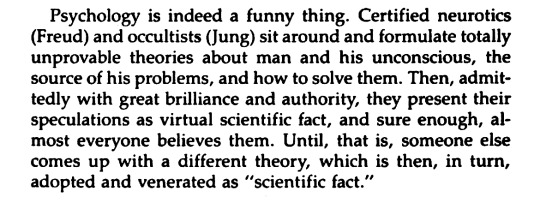
— Johanna Michaelsen, Like Lambs to the Slaughter
30 notes
·
View notes
Text
Ruhu Yeniden Bulmak
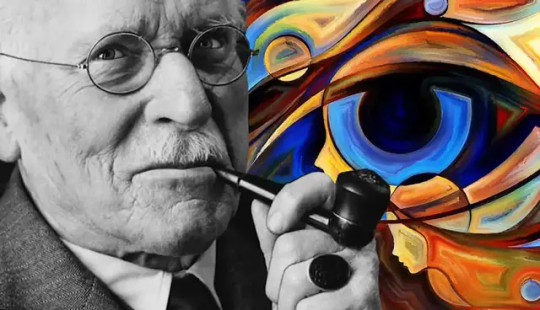
[ÖH ii(r)] ¹
Cap i. ²
[2] 1913 yılının Ekim ayında sel görüsünü yaşadığım dönem bir insan olarak benim için önemliydi. Bu dönemde, hayatımın kırkıncı yılında, kendim için istediğim her şeye ulaşmıştım. Onur, güç, zenginlik, bilgi ve her türlü insani mutluluğa ulaşmıştım.
Neden sonra bu debdebenin artmasını istemekten vazgeçtim, istek benden çekildi ve yılgıya kapıldım. ³ Sel görüsü beni ele geçirmişti ve derinliklerin tinini hissetmiştim ama onu anlamamıştım. ⁴ Yine de o beni katlanılmaz bir içsel özlemle sürmeye devam etti ve şöyle dedi:
[1] ⁵ “Ruhum, neredesin? Beni işitiyor musun? Konuşuyorum, sana sesleniyorum. Orada mısın? Bütün ülkelerin tozunu ayaklarımdan silkeledim ve sana geldim, seninleyim. Uzun uzun dolaştıktan sonra, uzun yıllardan sonra yine sana geldim. Gördüğüm, yaşadığım ve tadını çıkardığım her şeyi sana anlatayım mı? Yoksa yaşamın ve dünyanın tüm o gürültüsünü işitmek istemez misin? Yine de bir şeyi bilmelisin; öğrendiğim bir şey insanın bu hayatı yaşamasının gerektiği.
Bu hayat yoldur, bizim tanrısal diyeceğimiz akıl sır ermez olana giden, nicedir aranan yoldur. ⁶ Başka yol yok, diğer tüm yollar yanlış izde. Ben doğru yolu buldum, o beni sana, ruhuma getirdi. Tavlanmış, arınmış olarak sana döndüm. Beni hâlâ tanıyor musun? Ayrılık ne uzun sürdü! Her şey ne kadar da değişti. Peki seni nasıl buldum? Ne görülmemiş bir yolculuktu! İyi bir yıldızın bana nice karmaşık yollarda rehberlik ettiğini sana hangi sözlerle anlatayım? Elini ver bana, benim neredeyse unutulmuş ruhum. Hayat beni sana geri getirdi. Yaşadığım tüm mutlu ve tüm üzgün saatler için, her neşe ve her keder için hayata teşekkür edelim.
Ruhum, yolculuğum seninle devam edecek. Seninle dolaşacağım ve ıssızlığına yükseleceğim.” ⁷
[2] Derinliklerin tini beni bunu söylemeye ve aynı zamanda kendime karşı bunu çekmeye zorladı çünkü henüz bunu beklemiyordum. Hâlâ bu çağın tini altında yolunu kaybetmiş çabalıyor ve insan ruhu üzerine farklı düşünüyordum. Ruh üzerine ne çok düşünüyor ve ne çok söylüyordum.
Onun hakkında bilgece sözcükler biliyor, onu yargılıyor ve bilimsel bir nesneye dönüştürüyordum. ⁸ Ruhumun, yargımın ve bilgimin nesnesi olamayacağını hesaba katmıyordum; oysa asıl benim yargım ve bilgim ruhumun nesnesiydi. ⁹ Böylece derinlerin tini beni ruhumla konuşmaya, ona yaşayan ve kendinde var olan bir varlık olarak seslenmeye zorladı.
Buradan derinliklerin tininin ruhu nasıl gördüğünü öğreniyoruz: Onu yaşayan ve kendinde var olan bir varlık olarak görüyor ve böylece ruhu insana bağımlı, yargılanmasına ve düzenlenmesine izin veren ve döngesini kavrayabileceğimiz bir şey olarak gören bu çağın tiniyle çelişiyor.
Eskiden ruhum dediğim şeyin hiç de benim ruhum olmadığını, ölü bir dizge olduğunu kabul etmek zorundaydım. ¹⁰ Böylece ruhumla uzakta ve bilinmeyen bir şey olarak, benim sayemde var olan değil, sayesinde var olduğum bir şey olarak konuşmam gerekiyordu.
İsteği dış şeylere yüz çeviren ruhun olduğu yere ulaşır. ¹¹ Ruhu bulamazsa boşluğun yılgısı onu kaplar ve korku onu zamanı kamçılayan bir kırbaçla sürükler ve yine dünyanın sığ şeyleri için umutsuz bir çaba ve kör bir istek duymaya devam eder.
Sonsuz isteğiyle budalalaşır ve ruhunun yolunu yitirir ve bir daha da bulamaz. Her şeyin peşinden koşar ve onları sıkı sıkıya tutar ama ruhunu bulamaz çünkü ruhunu ancak kendi içinde bulabilir. Gerçekte ruhu şeylerde ve insanlardadır ama kör olan, şeyleri ve insanları tutar, şeylerin ve insanların içindeki ruhunu değil. Ruhuna dair hiçbir bilgisi yoktur. Onu şeylerden ve insanlardan nasıl ayırt edebilsin? Ruhunu isteğin kendisinde de bulabilir, isteğin nesnelerinde değil. İsteği onun sahibi olmasaydı ve o isteğinin sahibi olsaydı ruhunu bulabilirdi çünkü isteği ruhunun imgesi ve ifadesidir. ¹²
Bir şeyin imgesine sahipsek o şeyin yarısına sahibizdir.
Dünyanın imgesi dünyanın yarısıdır.
Dünyaya sahip olan ama imgesine sahip olmayan, dünyanın ancak yarısına sahiptir çünkü yoksul ruhunun hiçbir şeyi yoktur. Ruhun zenginliği imgelerdedir. ¹³ Dünyanın imgesine sahip olan, insanlığı yoksul olsa ve hiçbir şeyi olmasa bile dünyanın yarısına sahiptir. ¹⁴ Gel gör ki açlık ruhu katlanılmaz olanı yemeye ve onunla zehirlenmeye iter. Dostlarım, ruhu beslemek bilgeliktir, yoksa yüreğinizde ejderler ve şeytanlar beslersiniz. ¹⁵
___
⁰¹— Metinde Jung beyaz kuşun ruhu olduğunu söylüyor. Jung’un simyada güvercin tartışması için bkz. Mysterium Coniunctionis (1955/56) (TE 14, §81).
⁰²— Düzeltilmiş Taslak'ta “İlk Geceler” (s. 13).
⁰³— El Yazması Taslak’ta şöyle diyor: “İşlerin değişmeye başladığı otuz beşinci yıl, yaşamın gölge yanının, ölüme inişin ilk anıdır o. Dante’nin bu noktayı bulduğu açık, Zerdüşt'ü okuyanlar Nietzsche’nin de onu keşfettiğini görecektir. Bu dönüm noktası geldiğinde insanlar çeşitli yollardan geçer: Kimi yüz çevirir ona kimi de içine dalar, dışarıdan olanlara da önemli bir şey olur. Biz bir şey görmezsek Yazgı yapar bunu bize” (Barbara Hannah, yay. haz., Modern Psychology Vol 1 and 2: Notes on Lectures given at the Eidgenössiche Technische Hochschule, Zürich, by Prof. Dr. C. G. Jung, Ekim 1933-Temmuz 1935, 2. baskı. [Zürih: özel basım, 1959], s. 223).
⁰⁴— 27 Ekim 1913’te Jung, Freud’a aralarındaki ilişkilere son verdiğini ve Jahrbuch für Psychoanalytische und Psychopathologische Forschungen editörlüğünden istifa ettiğini yazmıştı (William McGuire, ed., The Freud/jung Letters, çev. R. Mannheim and R. F. C. Hull [Princeton: Princeton University Press/Bollingen Series, 1974], s. 550).
⁰⁵— 12 Kasım 1913. “Özlem”den sonra Taslak “bunu izleyen ayın başında kalemimi aldım ve bunları yazmaya başladım” şeklinde devam ediyor (s. 13).
⁰⁶— Bu onay Jung’un sonraki yazılarında da birkaç kez görülüyor. Örneğin, bkz. Jane Pratt, “Notes on a talk given by C. G. Jung: 'Is analytical psychology a religion?’” Spring Journal of Archetypal Psychology and Jungian Thought (1972), s. 148.
⁰⁷— Jung sonradan bu dönemde yaşadığı kişisel dönüşümü yaşamın birinci yarısındaki
hedeflere ve isteklere ulaşıldıktan sonra genellikle ruha dönüşün öne çıktığı yaşamının ikinci yarısının başlangıcı olarak anlatır (Symbols of Transformation [1952], te 5, s. xxvi); ayrıca bkz. “The turning point of life” (1930, TE8).
⁰⁸— Jung burada önceki çalışmalarına gönderme yapıyor. Örneğin, 1905 yılında “Çağrışım deneyi sayesinde en azından hasta ruhun gizemleri üzerine deneysel araştırma yapmanın yolunu açacak araçlara kavuşuyoruz” yazmıştı (“The psychopathological meaning of the associations experiment,” te 2, §897).
⁰⁹— Psikolojik Tiplerde (1921) Jung psikolojide kavramların “araştırmacının öznel psikolojik toplamının ürünü” olduğunu yazar (te 6, §9). Bu kendine-bakış sonraki çalışmalarında da önemli bir konu olacaktır (bkz. Jung and the Making of Modern Psychology: The Dream of a Science, §I).
¹⁰— Taslak şöyle devam ediyor: “sözde deneyim ve yargıları bir araya getirerek tasarladığım ölü bir dizge” (s.16).
¹¹— 1913'de Jung bu süreci libidonun içe bakışı olarak adlandırmıştı (“On the question of psychological types,” te 6).
¹²— Jung 1912’de şöyle yazmıştı: “Özlemi nesnenin niteliği bakımından değerlendirmek yaygın bir yanılgıdır. Doğa yalnızca insanın ona atfettiği özlem ve sevgi bakımından güzeldir. Biçimden yayılan estetik özellikler ilk olarak ve öncelikle, doğanın güzelliğinden sorumlu olan libido ile ilgilidir. (Transformations and Symbols of the Libido, te B, §147).
¹³— Jung, Psikolojik Tipler'de imgenin önceliğini esse in anima düşüncesi bakımından ele alır. Cary Baynes günlük notlarında bu bölümü şöyle yorumluyor: “Beni özellikle “Bild"in [imge] dünyanın yarısı olduğunu söylemeniz çok şaşırttı. İnsanlığı böylesine donuk yapan da bu. Bu şeyi anlayamadılar, gözden kaçırdılar. Dünya, yani onları esrik tutan şeyi. ‘Das Bild', onu şairler dışında hiç kimse ciddi olarak göz önüne almadı” (8 Şubat 1924, CFB).
¹⁴— Taslak şöyle devam ediyor: “Yalnızca şeyler için uğraşan dışsal varsıllığı arttıkça yoksulluğa gömülür ve ruhu müzmin hastalığa yakalanır” (s. 17).
¹⁵— Taslak şöyle devam ediyor: “Ruhu yeniden bulma üzerine bu meselin amacı, dostlarım, beni ancak yarım bir insan olarak gördüğünüzü anlatmaktı çünkü ruhum beni yitirdi.
___
Carl Gustav Jung
Kırmızı Kitap (104—106)
Türkçesi: Okhan Gündüz
3 notes
·
View notes
Text
The love problem is part of mankind's heavy toll of suffering, and nobody should be ashamed of having to pay his tribute.
— C.G. Jung, Civilization in Transition (Routledge & Kegan Paul; March 31, 1964)
4 notes
·
View notes
Text
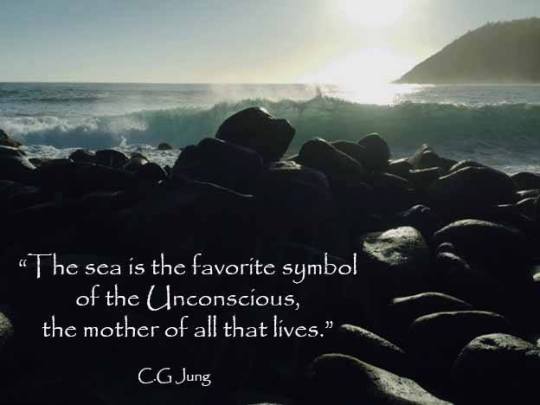
7 notes
·
View notes
Text
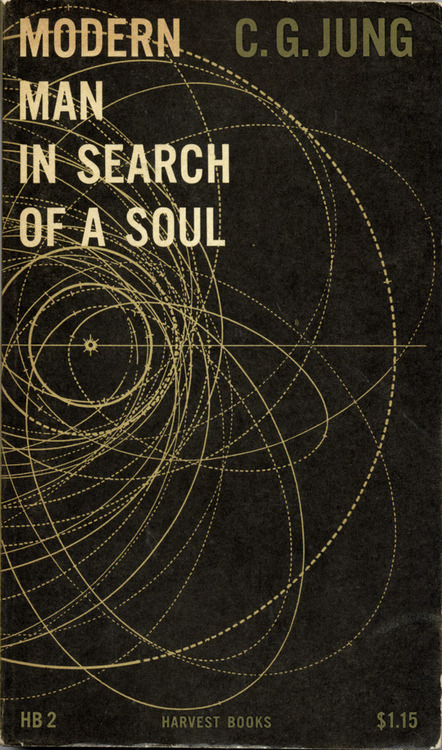
#c.g.jung#jung#perception#carl jung#understanding#observation#modern man in search of a soul#book cover#c. g. jung
6 notes
·
View notes
Text
“We put thirty spokes together and call it a wheel; But it is on the space where there is nothing that the utility of the wheel depends. We turn clay to make a vessel; But it is on the space where there is nothing that the utility of the vessel depends. We pierce doors and windows to make a house; And it is on these spaces where there is nothing that the utility of the house depends. Therefore just as we take advantage of what is, we should recognize the utility of what is not.”
“Because the eye gazes but can catch no glimpse of it, It is called elusive. Because the ear listens but cannot hear it, It is called the rarefied. Because the hand feels for it but cannot find it, It is called the infinitesimal. … These are called the shapeless shapes, Forms without form, Vague semblances. Go towards them, and you can see no front; Go after them, and you see no rear.”
“We must remember that the rationalistic attitude of the West is not the only possible one and is not all-embracing, but is in many ways a prejudice and a bias that ought perhaps to be corrected.”
“This experience punctured the desired hole in her rationalism and broke the ice of her intellectual resistance.”
- C. G. Jung, Synchronicity: An Acausal Connecting Principle
#carl jung#synchronicity#depth psychology#jungian psychology#psychology#entheogens#occult#magick#quote#quotes#c. g. jung#jungian archetypes#i love you
5 notes
·
View notes